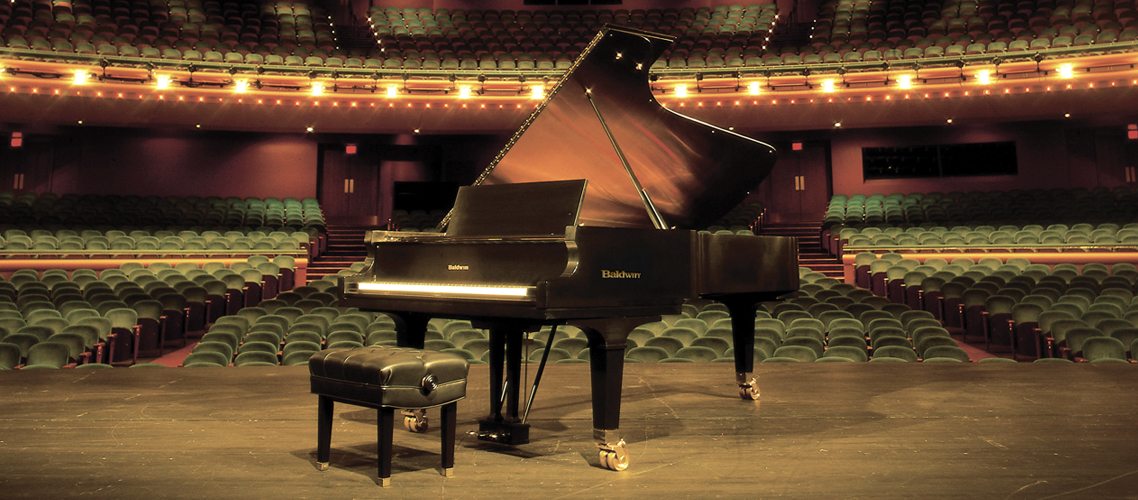Baldwin: Timeless Instruments for Playing Timeless Music
Baldwin Piano Company (often shortened simply to “Baldwin”) is a company specializing in the production and manufacturing of pianos, organs, and other keyboard instruments. At one time, Baldwin Piano Company was the largest manufacturer and seller of pianos in the United States. The company was founded in 1889 by Dwight Hamilton Baldwin of Cincinnati, Ohio when he promised himself after many years of teaching students how to play that he was going to build the best piano that could possibly be built. The first piano ever produced by Baldwin Piano Company was a classic upright piano, with an oak finish (which was standard fare at the time) which began production and sales in 1891. The company introduced the world to its first ever concert grand piano just four years later, in 1895.
Four years after the introduction of the company’s first grand piano, Baldwin passed away from unknown causes at the age of 78. The very next year, Baldwin Piano Company was the first American piano company to win first prize in the Grand Prix at the Exposition Universelle in Paris, France, using its Model 112, a classic upright with a dark mahogany finish; an updated version of the Model 112 can still be purchased today, and is generally recommended for young beginners who need full-size piano performance in a compact size. In addition to its victory in France, the company also won expos in the United States, including the Louisiana Purchase Exposition in 1910 and the Anglo-American Exposition in 1914. Due to the company’s repeated success at these events, both nationally and internationally, news about Baldwin Pianos began spreading all over the world. As a result, sales began to skyrocket, and Baldwin Piano Company was exporting their instruments to over 30 countries by 1930, and to over 50 countries by 1945. These sales included both upright pianos and grand pianos, as well as the new line of player pianos Baldwin Pianos began manufacturing in the late 1920s in order to compete in the ever-growing player piano market.
World War II was a trying but ultimately important event in Baldwin history. During that time, the United States War Production Board demanded that all piano factories cease production in order to convert them into productions for aircraft to aid in the United States’ efforts in the war. It is with this event that the president of the company at the time, Lucien Wulsin II, published his famous quote: “If humanity can no longer create art, then what are we fighting for?” Ultimately, however, while the production of aircraft by former Baldwin factories cannot be considered successful, many of the lessons learned involving the creation of plywood aircraft wings proved incredibly useful in the production of future pianos by the company after the war, marking a very important event in Baldwin history.
The company had successfully doubled its production by the early 1960s, and in 1973, sold its one millionth upright piano. Subsequently, the company attempted to make itself known in the popular music industry with its purchase of Burns of London, where it attempted to sell guitars, but largely failed due to Gibson’s overwhelming dominance in the market. Much later, in 2005, Baldwin became a subsidiary of Gibson guitars, and also began manufacturing pianos under the Chickering, Wurlitzer, and Howard names, as well as organs under the Hamilton name. In 2008, the company acquired two production plants in China, where it continues production and manufacturing to this day.
Most of the notable people who performed on Baldwin pianos were early- to mid-20th century performers, such as Bela Bartok, Leonard Bernstein, and Igor Stravinsky. However, there are musicians that continue to perform on Baldwins to the present day, including John Williams and Richard Carpenter. Additionally, one of Claudio Arrau’s final performances before his death in 1991 was on a Baldwin concert grand piano.







